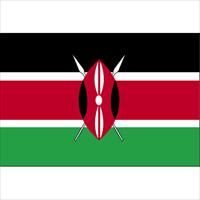KENYA: Pledges high but millions more needed in humanitarian aid

Close to US$30 million has already been pledged by international donors for humanitarian operations to assist people affected by Kenya's post-election crisis, but millions more are needed, according to UN and non-governmental aid agencies.
An "emergency humanitarian response plan", launched in New York on 16 January, combines the needs laid out by UN agencies working in Kenya and about a dozen NGOs. It estimates $41.9 million will be needed for emergency operations related to post-election violence, displacement and loss of livelihoods. Funds in hand are put at about $7.1 million, leaving a balance of about $34 million for the next six months.
Among the largest pledges to the crisis so far are US$8 million from the European Commission Humanitarian Aid Department (ECHO), $7 million from the UN-managed Central Emergency Response Fund (CERF) and $5 million from USAID. Other pledges reported by media, mostly from European countries, bring the total close to $30 million.
These funds may be spent on programmes in the new appeal (the CERF funds are already committed to components of the plan) or through an earlier additional appeal from the Kenya Red Cross Society for $15.4 million or through other initiatives and NGOs.
The International Committee of the Red Cross (ICRC) had also issued a provisional appeal for funding but is reviewing needs, according to an ICRC official.
The response plan launched by John Holmes, UN Under-Secretary-General for Humanitarian Affairs and Emergency Relief Coordinator, states that 500,000 people have been affected and need emergency aid in a situation characterised as a "protection crisis".
"The clear ethnic dimension to the violence, with members of specific groups targeted, has characterised this emergency a serious protection crisis, albeit with a direct link to an underlying political one. The humanitarian implications of the violence are grave," the plan states.
Funding is needed for food, protection, shelter, medical services, water and sanitation, education and support to agriculture and other livelihood interventions.
Domestic fund-raising efforts have involved the general public at local and national level, with neighbours, churches and mosques providing aid to those in need. In a major public campaign for the Red Cross, supported by local media, Kenyans have donated clothes, food and other items such as sanitary towels direct to Red Cross depots or at supermarkets.
An official of the Nakumatt supermarket chain told IRIN the company had noticed "a very big response".
Kenya Red Cross spokesperson Anthony Mwangi said it was hard to put financial values to the in-kind donations from the public, but that they ran to "millions of Kenya shillings [tens of thousands of dollars]". Mwangi added that a full "tabulation" was being done to record the exact amounts.
For now, Mwangi said "every bit of everything" is still needed, and that a very good public response showed Kenyans' ability to participate in the relief effort.
 Back and Next - Back and Next
Back and Next - Back and Next See Also - See Also
See Also - See Also